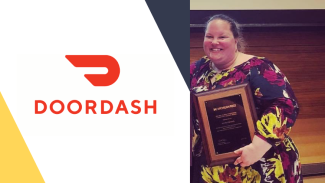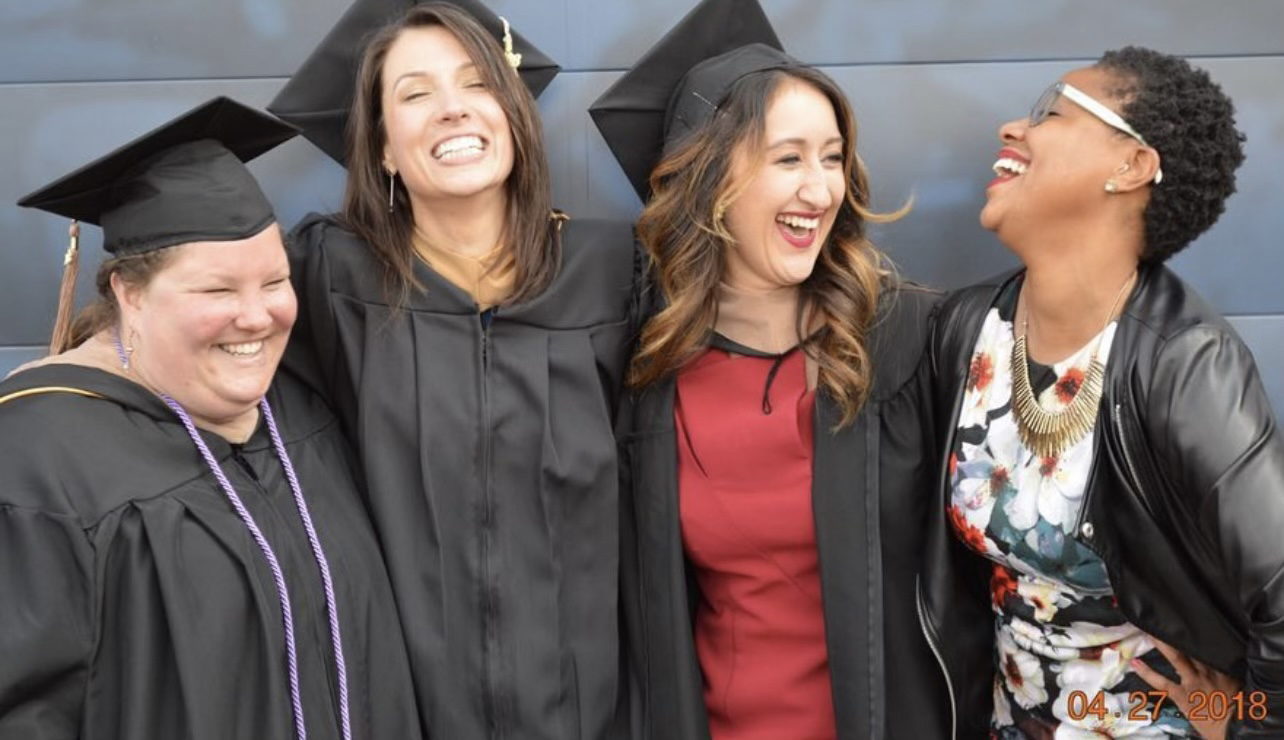Ali Raymond, MBA ‘18: Shaping the Future of Work at DoorDash

DoorDash Senior Human Resources Business Partner Ali Raymond, MBA ’18, is a work futurist whose role positions her at the forefront of a global revolution in how we work.
According to Raymond, the COVID-19 pandemic has transformed the future of work. Instead of a focus on showing up, performing tasks, and meeting corporate challenges, business is moving toward a model that puts people at the center of balancing their own well-being.
“A silver lining of the pandemic is that the power of expectation is in the hands of employees who are asking more of leaders and organizations, driving transparency and accountability in new ways, and demanding a seat at the table for identities in ways most organizations weren’t yet structured to address,” said Raymond.
A diverse background of experience

Raymond left her hometown of San Francisco in 2004 to pursue a dual bachelor’s degree in Russian and diplomacy and world affairs at Occidental College in Los Angeles. She also studied abroad at Saint Petersburg State University in Russia.
After graduation, Raymond joined a public health startup, then took a business process and project management role at biotechnology company Genentech. She later taught English at a business school in Kazakhstan, and ran recruiting and operations throughout the former Soviet Union for a nonprofit organization called American Councils.
Having gained experience in the startup, nonprofit, and corporate worlds, Raymond noted that even across various industries, sectors, and countries, employees struggled to find inclusion and meaning in their work, and companies often failed to live up to their workplace missions.
“I said to myself: What is going to give me access to the rooms where conversations about inclusion are being had?” Raymond said. “It was pretty clear to me that as an executive at a company, you have free rein to set culture, to set impact, to set milestones for tracking. So business school really started to emerge as a great opportunity to put all these pieces together. But I needed to find the right program where my nontraditional background would be appreciated and celebrated.”
So, Raymond returned to the United States, took a job with architecture and design firm Gensler in the office of the CFO, and enrolled at the Ross School of Business planning to pursue management consulting.
Finding passion for progress in human resources at Ross
The diverse, international community Raymond discovered at Michigan Ross created the perfect environment for her to realize her full potential and capitalize on her wide range of experience.
I could feel that there was a passionate group of students and administrators who really cared deeply about my personal progress and that I wasn’t going to be another statistic in the career book. I knew I could take this myriad background and experience and elevate it to the next level but still be authentic to myself
But, Raymond says the opportunity to participate in the on-campus internship recruiting events with a variety of high-caliber companies and Michigan Ross alumni helped her to realize she wanted to pursue a different path than management consulting. During conversations and interviews, she found herself repeatedly asking about workplace culture, DEI practices, and talent mindsets, until it became apparent her true passion was in HR.
“One of the most critical skills I learned from Ross was how to manage across cultures and differences,” Raymond says. “Programs like the Multidisciplinary Action Projects course on millennial retention, the Social Venture Fund, a course traveling to Sri Lanka with the William Davidson Institute, and team assignments, meant that I was ready to be thrust into almost any team possible and able to build trust and commonality.”
Lessons learned at Ross resonate in the real world

After earning her MBA, Raymond spent several years working at Johnson & Johnson before landing her current role with DoorDash. Raymond supports the chief financial officer and is on the DoorDash leadership team for finance, analytics, data, real estate, and international expansion.
While Raymond’s role encompasses coaching, talent management, and organizational design, she said that her cross-disciplinary foundation from Michigan Ross has been crucial for navigating the reality of a shifting corporate landscape.
“Especially amid the pandemic, the best opportunity to motivate diverse and dispersed teams relies on giving people grace,” Raymond said. “Understand what is realistic for people across time zones and amid competing priorities, clarify the asks, set an agenda, and keep as much autonomy to individuals as possible.”
At DoorDash, Raymond sees the changes in work culture as a huge opportunity, and she has applied much of what she learned at Michigan Ross to establish listening programs to check in and find out how employees are doing.
“Executives as people and corporations as entities are all grappling with the Great Resignation, the shifting of values, how to build community, and collaboration at a time of unseen loneliness,” Raymond said. “The companies that are able to translate their values into the lived experience of employees are the ones that are going to differentiate themselves.”







